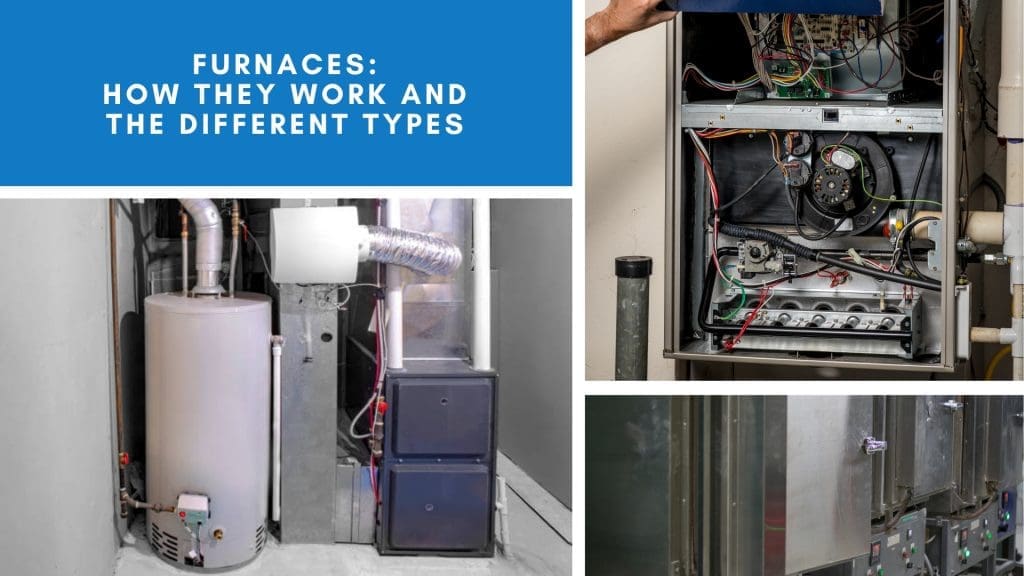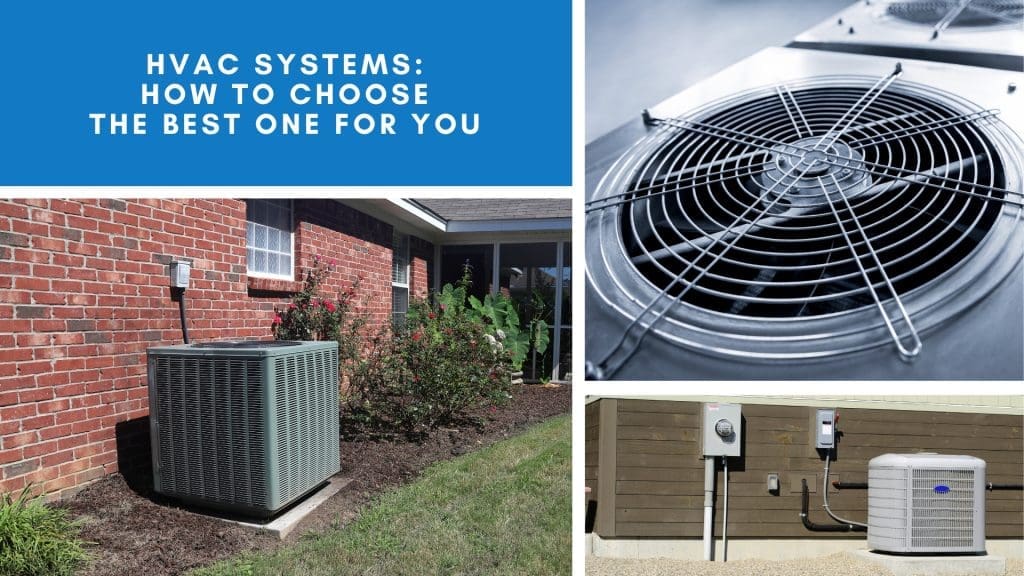TL;DR Summary for Those in a Hurry:
- 2025 HVAC Regulations introduce major changes in refrigerants and efficiency standards that will affect how home heating and cooling systems are maintained and upgraded.
- Older systems using high global warming potential refrigerants like R-410A may become harder and more expensive to service, prompting many homeowners to consider upgrades.
- The transition to new, low-GWP refrigerants (e.g., R-32 or similar) and stricter efficiency rules can lead to long-term energy savings and improved comfort.
- Planning ahead with professional assessments helps avoid last-minute rushes, higher costs, and scarcity of parts for outdated systems.
- Homeowners should explore rebates, incentives, and maintenance strategies now to ease the financial impact of compliance.
The world of HVAC is about to change. The 2025 HVAC regulations are on the horizon, bringing significant updates. These changes focus on refrigerants, aiming to reduce environmental impact. Homeowners need to understand these new rules.
The new regulations will phase out high global warming potential refrigerants. This means older systems may need upgrades or replacements. It’s a move towards sustainability and energy efficiency. But what does this mean for you?
For stay-at-home moms juggling tasks, this could mean fewer HVAC issues. Small business owners might see changes in operational costs. Those working from home will want reliable systems for comfort and productivity.
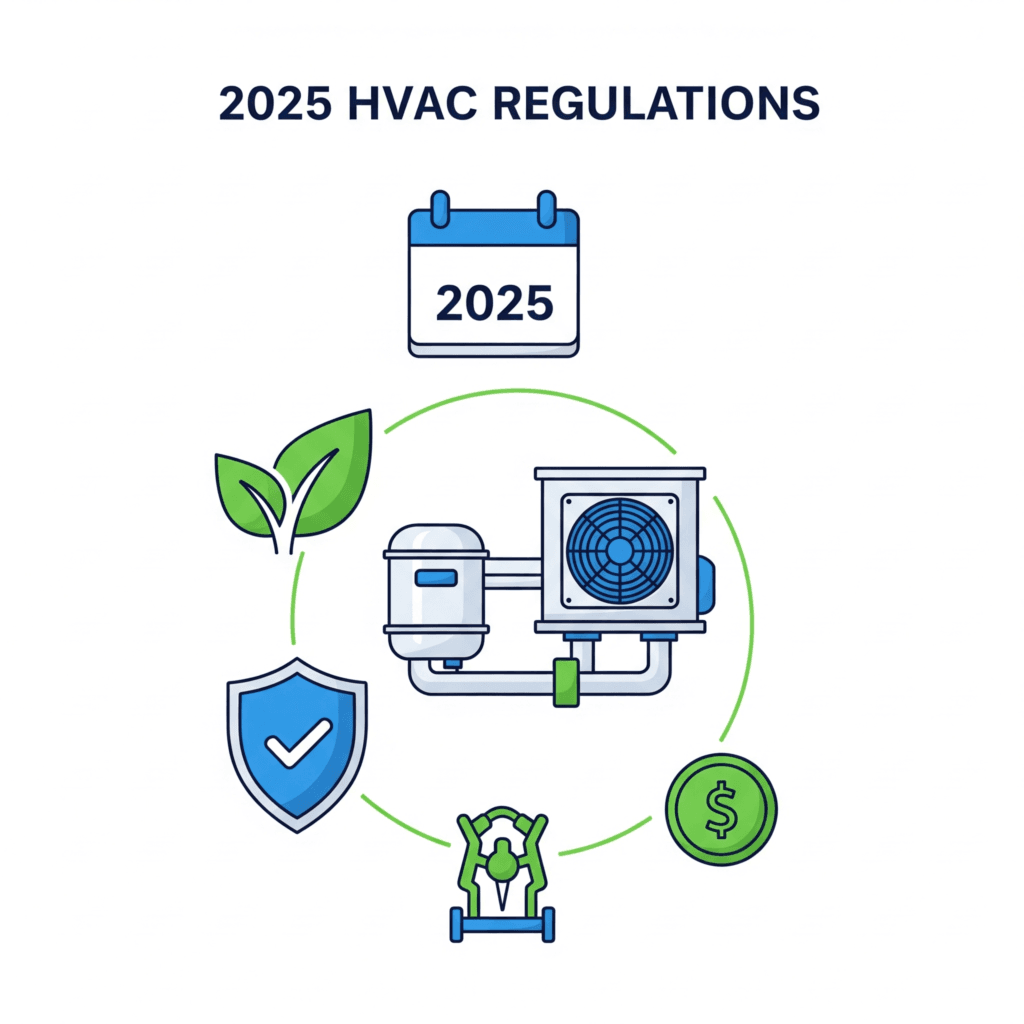
Understanding these changes is crucial. It helps in making informed decisions about your HVAC system. The transition might involve costs, but it promises long-term savings. Energy-efficient systems can lower utility bills.
Stay informed and prepared. Consult with trusted HVAC professionals. At LC Heating and Air Conditioning Hollywood, we’re here to help. Contact us at (818) 858-7080 for guidance.
What Are the 2025 HVAC Regulations?
The 2025 HVAC regulations mark a pivotal shift in how air conditioning systems operate. These changes primarily focus on the type of refrigerants used. Let’s break down what these regulations entail and why they matter.
The aim is to transition to refrigerants with a lower global warming potential (GWP). The regulations are pushing for the phase-out of older refrigerants like R-410A. In their place, more eco-friendly options are set to become the standard.
Key changes include:
- Phase-out of high-GWP refrigerants
- Adoption of new refrigerants like R-32
- Training for technicians on handling new systems
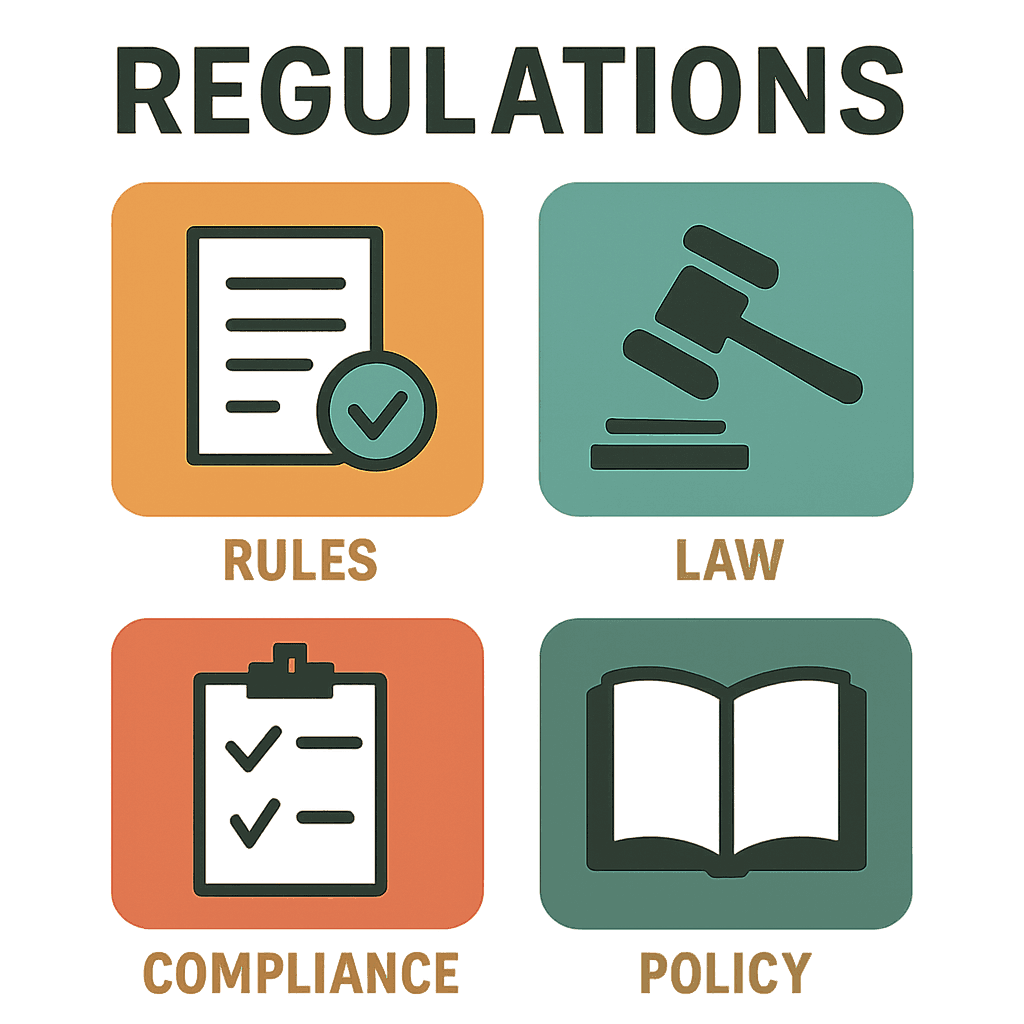
This transition supports global efforts against climate change. By promoting sustainable practices, the 2025 regulations set a new standard for environmental responsibility in the HVAC industry.
Homeowners will play a crucial role in this shift. Many may need to upgrade their systems to comply with the new standards. This ensures efficient operation and alignment with new regulations.
Navigating these changes might seem daunting. However, understanding the new guidelines will help in making wise choices for your home HVAC system.
Why Are These Refrigerant Changes Happening?
The shift in refrigerant regulations is driven by environmental concerns. Traditional refrigerants have been contributing to global warming. High global warming potential (GWP) levels in older refrigerants pose a significant risk.
As a response, the HVAC industry is adopting greener alternatives. These changes are crucial for minimizing environmental impact. By using refrigerants with lower GWP, we aim to reduce harmful emissions.
The benefits of these refrigerant changes include:
- Reduction in greenhouse gas emissions
- Improved energy efficiency
- Support for sustainable practices
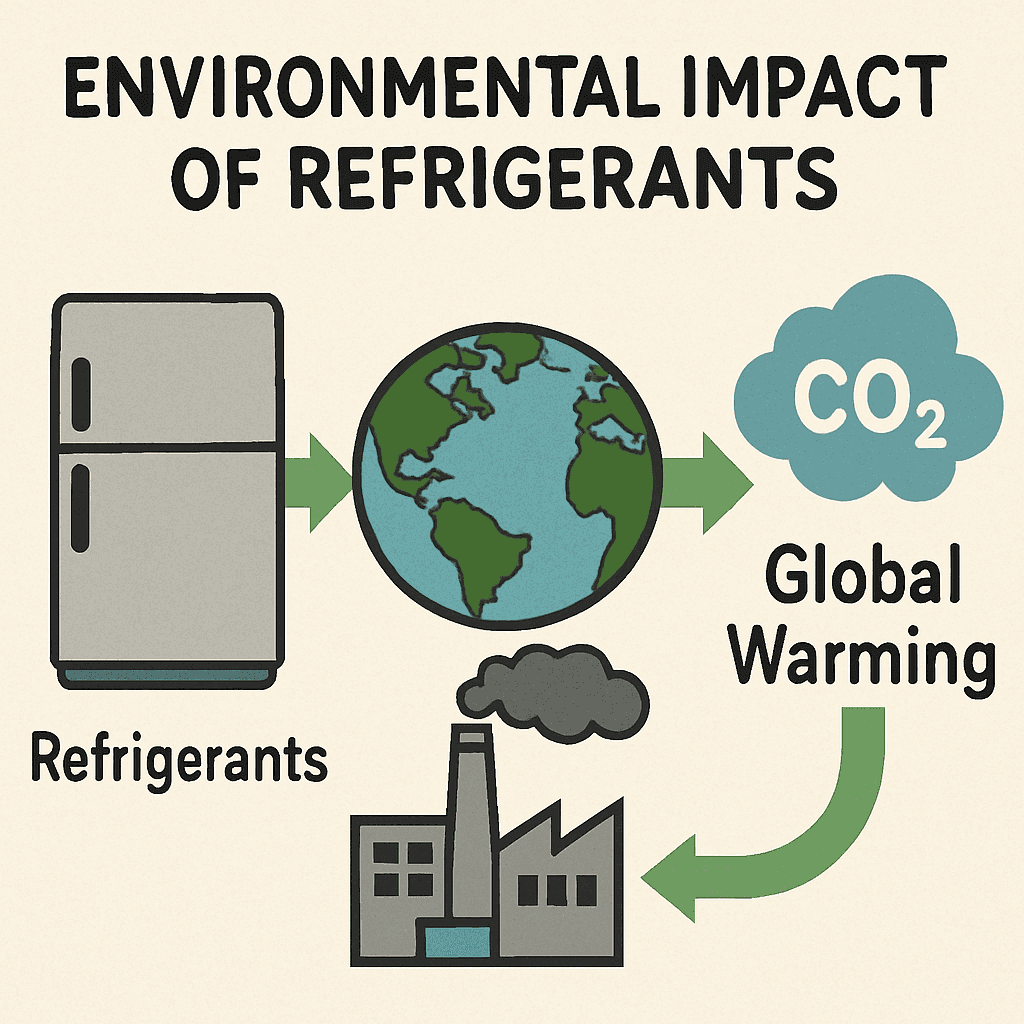
Addressing climate change is a collective effort, and the HVAC sector plays a vital role. The 2025 refrigerant mandate aligns with global sustainability goals. This transition not only protects the planet but also promotes healthier indoor air quality.
Homeowners, too, will benefit from these positive changes. With energy-efficient systems, they’ll enjoy comfort and savings in the long run. Embracing these regulations is a step towards a cleaner, greener future.
What Is the New Refrigerant Coming Out in 2025?
The HVAC industry is preparing for a major transition. In 2025, a new refrigerant will enter the scene, likely R-32 or a similar alternative. This refrigerant boasts a lower global warming potential.
R-32 is not entirely new but will become more mainstream. It is known for being more efficient compared to older refrigerants. You can expect better performance with less energy consumption.
The benefits of R-32 or its counterparts include:
- Reduced environmental impact
- Enhanced energy efficiency
- Improved safety profiles
By switching to this new refrigerant, systems will be more aligned with environmental goals. This shift is part of a larger strategy to ensure sustainable practices. It’s important for homeowners to understand these changes.
Transitioning to R-32 or another new refrigerant can also mean long-term cost savings. Upgraded systems utilizing these refrigerants may last longer and require less maintenance. Homeowners should consider these benefits when planning system upgrades.
How Will the 2025 HVAC Regulations Affect Homeowners?
The 2025 HVAC regulations will significantly impact homeowners. Understanding these changes is crucial. Homeowners may need to replace or upgrade their HVAC systems.
Older units relying on outdated refrigerants like R-410A might become obsolete. This can lead to increased service or repair costs. Availability of older refrigerants will decrease, driving prices up.
Safety and efficiency become focal points under the new rules. The regulations emphasize using refrigerants with lower global warming potential. Homeowners will benefit from more energy-efficient units. These systems promise better performance with reduced energy bills.
With older systems, maintenance might become more challenging. Parts and refrigerants for aging models will get scarce. Proactively upgrading systems to meet new standards is wise.
Here’s how these changes might affect you:
- Increased costs for maintaining outdated systems
- Need for system upgrades to keep up with regulations
- Potential long-term savings from energy-efficient units
It’s important to plan for these changes early. Consult professionals to assess the state of your current system. This can help you create a strategy that minimizes stress and maximizes benefits. Remember, preparing now can save you a lot in the long run.
What Do the New HVAC Regulations Mean for Your Existing System?
The new HVAC regulations might mean it’s time to reevaluate your existing system. These changes don’t just affect new installations.
If your system uses high-GWP refrigerants, it might need an upgrade. The goal is to reduce these environmental impacts. Embracing new refrigerants is vital.
Many homeowners worry about the costs of switching. Initial investment might seem daunting. However, efficiency gains and lower utility bills often compensate for these expenses.
Older systems become harder to maintain under the new rules. Parts for outdated technology will become harder to find. Think of it as a chance to improve home comfort and efficiency.
Consider this checklist for your existing system:
- Identify refrigerants: Know what your system uses.
- Evaluate efficiency: Is your system energy-efficient?
- Plan upgrades: Consider a timeline for potential replacements.
Prepare for changes with assistance from professionals. They can offer guidance tailored to your home and needs. A proactive approach ensures a smooth transition and helps you avoid last-minute scrambles. Stay ahead by being informed and prepared.
Cost Implications: Upgrades, Repairs, and Long-Term Savings
Understanding the cost implications of the 2025 HVAC regulations is crucial for homeowners. Upfront expenses might seem significant, but savings can be long-term.
Upgrading to new systems can initially feel costly. However, the investment typically results in better energy efficiency. This can lead to reduced utility bills over time, a relief for any homeowner.
Repairs might also become more frequent and expensive for older systems. Parts and refrigerants may become scarce, driving up costs for maintenance. Evaluating your system’s current state can help plan financially.
Consider these cost factors:
- Initial upgrade costs: Expenses for new systems or retrofitting.
- Repair expenses: Higher costs for older system maintenance.
- Long-term savings: Reduced energy bills over years.
The financial aspect of HVAC upgrades shouldn’t be daunting. View it as a step toward sustainability and efficiency. With strategic planning, homeowners can manage these changes smoothly. Consulting with HVAC experts can provide insights tailored to your budget and system needs. Always remember, the investment today leads to savings tomorrow.
Energy Efficiency, Comfort, and Environmental Benefits
The 2025 HVAC regulations offer significant benefits beyond compliance. First and foremost is improved energy efficiency, which can drastically cut energy consumption. This means lower utility bills for homeowners who upgrade their systems.
New refrigerants and technologies enhance HVAC performance. They provide more consistent temperature control, which translates to increased comfort. Everyone wants their home to be a haven, especially when juggling work and family responsibilities.
Another key benefit is the positive impact on the environment. These regulations aim to reduce emissions and support sustainability goals. By adopting new systems, homeowners can contribute to a greener planet.
Key benefits include:
- Energy efficiency: Lower utility bills.
- Comfort: Improved temperature control.
- Environmental protection: Reduced emissions.
Embracing these changes not only benefits your wallet and comfort but also plays a part in environmental stewardship. The move towards more sustainable HVAC systems is a step in the right direction for everyone. Consulting HVAC professionals can clarify how these upgrades can specifically benefit your home.
What Should Homeowners Do to Prepare?
Preparing for the 2025 HVAC regulations is crucial for a smooth transition. The first step is to schedule an HVAC assessment with a professional. This will help you understand the current state of your system and any upgrades you might need.
After the assessment, evaluate your options for upgrading or replacing your system. Consider energy-efficient models that meet the new standards. It’s smart to explore different brands and technologies that align with your home’s requirements.
Research rebates and incentives available for new HVAC installations. Many programs offer financial assistance to ease the transition. This could significantly reduce your upfront costs, making upgrades more affordable.
To keep your system efficient, regular maintenance is vital. Schedule routine check-ups to ensure everything is running smoothly. This can prevent unexpected breakdowns and extend the life of your system.
Essential preparation steps include:
- Schedule an HVAC assessment
- Evaluate upgrade options
- Research rebates and incentives
- Plan for regular maintenance
Staying informed and proactive will ease the transition to new regulations. With preparation, you’ll ensure your home remains comfortable and efficient. Remember, a trusted HVAC professional can guide you through every step.
Rebates, Incentives, and Financing Options
Navigating the costs of HVAC upgrades can be easier with available rebates and incentives. Many government programs offer financial benefits for energy-efficient systems. These can significantly cut down the initial expense.
Utilities often provide incentives to homeowners upgrading to compliant models. Savings on installation costs can be substantial. It’s worthwhile to check local utility websites for offers.
Financing options can also help spread out payments over time. Many HVAC companies, including us at LC Heating and Air Conditioning, offer flexible financing plans. This allows homeowners to manage costs while upgrading their systems.
Explore various programs and options available to find the best fit for your situation. It’s a smart move to reduce the financial burden while enhancing your home’s comfort.
- Government rebates
- Utility incentives
- Flexible financing options
How to Avoid Scams and Work With Trusted HVAC Professionals
When the new regulations take effect, scam artists might try to exploit unsuspecting homeowners. Protect yourself by doing thorough research. Verify licenses and credentials of HVAC professionals.
Always ask for written estimates before any work begins. Compare quotes from multiple contractors to ensure fair pricing. Be wary of deals that seem too good to be true.
Seek recommendations from friends or online reviews to find reputable companies. A trusted professional will explain changes clearly and won’t pressure you into unnecessary services.
- Verify licenses and credentials
- Get written estimates
- Compare multiple quotes
- Seek recommendations
Why Choose LC Heating and Air Conditioning Hollywood?
At LC Heating and Air Conditioning Hollywood, we pride ourselves on delivering top-notch service. Our trained professionals understand the new HVAC regulations for 2025. We guide you through each step.
We focus on quality and customer satisfaction. Our team offers personalized consultations to discuss your HVAC needs. We prioritize clear communication and transparency.
Choose us for your HVAC upgrades or assessments. Trust our expertise to get the job done right. To schedule an appointment or learn more, contact us at (818) 858-7080.
- Experienced with 2025 HVAC regulations
- Personalized consultations
- Focus on quality and satisfaction
Final Thoughts: Stay Comfortable, Stay Informed
The upcoming 2025 HVAC regulations mean changes ahead for homeowners. Knowing these changes helps you prepare and adjust, ensuring comfort. HVAC systems are integral to daily life, providing the climate control needed for peace and productivity.
Staying informed allows you to make wise decisions about your HVAC needs. These regulations offer a chance to embrace more efficient and sustainable options. Consider the benefits of upgrading to systems that align with new standards.
For any questions or guidance, reach out to LC Heating and Air Conditioning Hollywood. Our team is ready to support you in navigating these updates. We’re just a call away at (818) 858-7080. Stay comfortable, and stay informed with us by your side.
2025 HVAC regulations mean refrigerant phase-outs, efficiency upgrades, possible short-term costs, and long-term benefits — prepare early with professional guidance for smoother transitions and lower bills.
FAQ:
What are the 2025 HVAC Regulations and why do they matter?
The 2025 HVAC regulations are new federal and industry rules targeting refrigerant phase-outs and higher energy-efficiency standards to lower environmental impact and support sustainability.
How will the refrigerant changes affect my home HVAC system?
The regulations phase out high global-warming-potential refrigerants like R-410A in favor of newer, low-GWP alternatives such as R-32, which may increase costs and require updated equipment in new systems.
Do I have to replace my current HVAC system immediately?
No — existing systems can still operate and be serviced, but maintaining older units may become more expensive as parts and older refrigerants become scarcer over time.
Will these regulations affect HVAC repair and maintenance costs?
Yes — as older refrigerants become harder to source, repair costs can rise, and technicians may need special training and tools to work with newer refrigerants.
Can upgrading my HVAC system now help me save money?
Upgrading to a compliant, energy-efficient system before the full rollout can help avoid future price increases, improve efficiency, and lower utility bills in the long run.
Are there financial incentives to help with the transition?
Many rebates, tax credits, and financing options are available to help offset the cost of installing high-efficiency HVAC equipment that meets the new standards.

